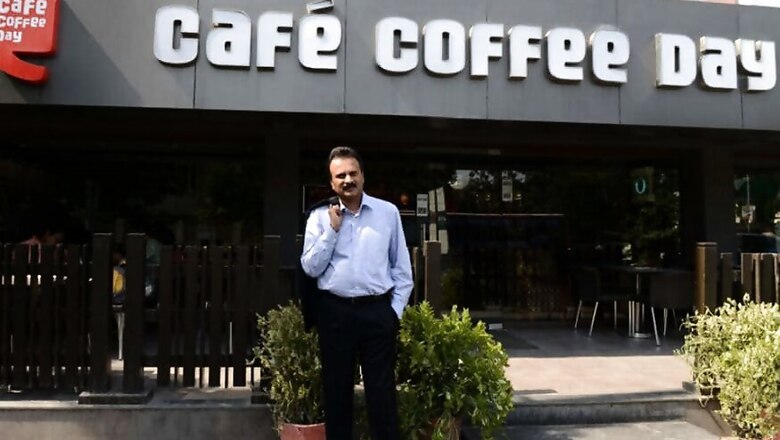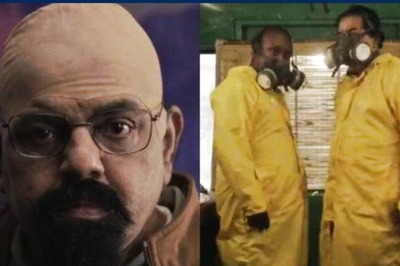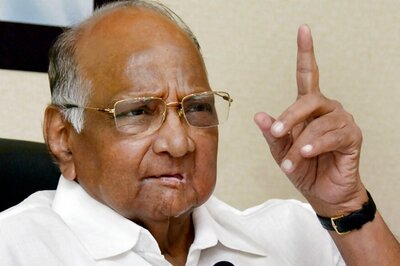
views
You don’t like waking up in the morning with the sad news of a coffee baron, who revolutionised coffee culture in India, having gone forever. Not if you are an ardent coffee lover, at least. Cafe Coffee Day founder VG Siddhartha was found dead 36 hours after he went missing from a bridge near Mangaluru in Karnataka. Café Coffee Day will always remain a heart-wrenching reminder of the ugly side of business.
Siddhartha, the founder of India's largest coffee chain, reportedly committed suicide. He had presumably written a letter to board members and employees of Coffee Day Enterprises Limited (CDEL) alleging harassment by income tax officials. He expressed regret for having “failed as an entrepreneur”. He also wrote that he was under “tremendous pressure” from his lenders as well as the income tax department. It is not essential to get into the specifics of his financial portfolio to discern how vulnerable the position of an entrepreneur is in a country like India. The incidence brings to the fore the gory aspects of financial models of our businesses.
Café Coffee Day (CCD), one of the businesses of CDEL, opened its first cafe in 1996 in Bangalore. It attracted the youth who immediately took to the cafe, and from thereon it continued to be one of the most vibrant places across the country. The CCD became a popular ‘hangout’ spot where people had conversations over steaming cups of coffee. It introduced Indian audience to the fact that there is more to coffee. They were bemused to learn that you don’t really order coffee in a coffee shop. You order a cocoa latte or a mocha or a frappe; all of which gave the Indian consumer a hedonic pleasure of being part of a happening culture and a sense of having arrived.
It became an iconic brand. It won several accolades. It was ranked as ‘2nd Most Exciting Brand’ under the category of ‘Food Services’ in India by Brand Equity (Economic Times) in 2012 and 2014. It was also awarded ‘The NCPEDP – Shell Helen Keller Award 2013’ by National Centre for Promotion of Employment for Disabled People for being a role model company in generating employment opportunities for person with disabilities.
Siddhartha was awarded with ‘ET Retail Hall of Fame’ for his contribution to the growth in retail sector. With so many accomplishments to showcase, one is left wondering, what went wrong? Why did Siddhartha have to take this extreme step? Somebody who was seen as a successful entrepreneur and an inspiring visionary leader gave up too soon, leaving unanswered questions: Do leaders fail? If they do, why?
Leaders are often burdened with the weight of the title they hold more than anything else. They are expected to focus on doing excellent work. They have to do the right things at the right time. Leaders are required to ‘think big’. In the process, they often forget to ‘think small’. They live with the folly that they have to ‘lead’. They forget that they have to ‘live’. They need to understand that living the small things in life is important too.
Sometimes the unimportant is important too. They need to understand that leaders fail too.
Most of the time, leaders have to grapple with undue expectations of their followers more than with real issues and problems. With ever increasing demands of the corporate world, the ability to get things done effectively is limited. Business is like shooting on drifting targets. Under such duress, it is possible for a leader to become too action-oriented and business-centric. Along the way, they lose touch with the realities of life. Most literature on leadership speaks of how great leaders change the world around them. Great leaders really don’t need to do that. They must acknowledge that even though they make the right decision, things can still go awry.
Sometimes leaders fall in the web of wisdom. The greatest obstacle to learning lies in what one already knows. As while trying to solve a ‘Rubik’s Cube’, we sometimes encounter a point where we are required to dismantle the partially arranged solution in order to move ahead. This may be frustrating, because it requires us to risk some part of what we have already learned. However, we may realise that probably that is the only way to solving the puzzle. And then one day when you realise that solving a Rubik’s cube was a lot easier than you thought, because it needed mastering just a simple algorithm, you cringe at having spent hours unscrambling the coloured square bits. The same analogy applies to the puzzle of business. Sometimes we need to unlearn things. Sometimes we need to think away from the usual. Leaders probably need to understand that the ways to success vary and so does the concept of success.
In a 2018 Harvard Business Review article, ‘You can be a great leader and also have a life, Brigit Schulte writes that intense work styles and crazy schedules are often celebrated as the only way to get to the top and be a super-productive leader. Brigit cites the example of a business leader who, when asked about his vision, stated that “he just wanted to be a good grandfather”. How many business leaders really see it this way?
The recent past has witnessed the public downfall of leaders in every arena -- business, politics, religion, entertainment or sports. These leaders, in their obsession to win, lost sight of the fact that losing is normal. They weighed down under their own weights. Leaders often succumb to the fear of failure. This is what happened in the case of VG Siddhartha as well. Otherwise, why would the founder of India’s largest chain of coffee shops, which became a global brand and a prominent investor in a successful IT services company, apologise for “failing to create the right profitable business model”. Business is not always about myopic figures of profit and sales. We need to stop running after that ‘shiny bright thing’.
The key question then is, what really happens when leaders give up? Losing a leader, as in the case of CDEL, is a deep loss for the organisation. It can forebode doom for the company. The share price of CDEL plummeted for 42.37% in the three days since the founder went missing. The stock hit a historic low after news of his death was received. This may have a critical bearing on the group’s morale and sense of motivation. A leader’s loss may engender unfounded fear of things just having come to an end. It can rock the very foundation of the organisation. It is natural for employees to feel vulnerable and insecure.
They may feel directionless because they no longer have someone championing the ideals of the organisation. There is imminent fear of having been left alone and utter confusion on how to keep the ball moving. All this can seriously affect the normal functioning of the organisation and threaten its very existence.
It is true that charismatic and inspiring leaders sometimes unknowingly create a culture of overdependence on the leader. Entrepreneurial ventures and start-ups, like CDEL, usually have their fortunes tied to that of their founder leaders. CDEL got its character from its founder. Such organsations embody the ideals of their leaders and it is difficult to separate the company from the leader. This being a strength becomes one of the greatest weaknesses too. With the chief architect having gone suddenly, the organisation loses direction and is likely to falter. But whether it springs back with resilience is what really matters.
Organisations that operate with a more flexible and networked structure have a much better chance of stabilising quickly when a leader leaves.
Hours after his death, one could read the following message boldly displayed on the home page of the company website: “We remember our beloved Chairman VG Siddhartha with pride. We stand committed to his vision and will continue building on his legacy.”
It is hoped that CCD continues to live. A lot can happen and will happen over coffee!
(The author is professor at Faculty of Management Studies & Research, Aligarh Muslim University.)




















Comments
0 comment